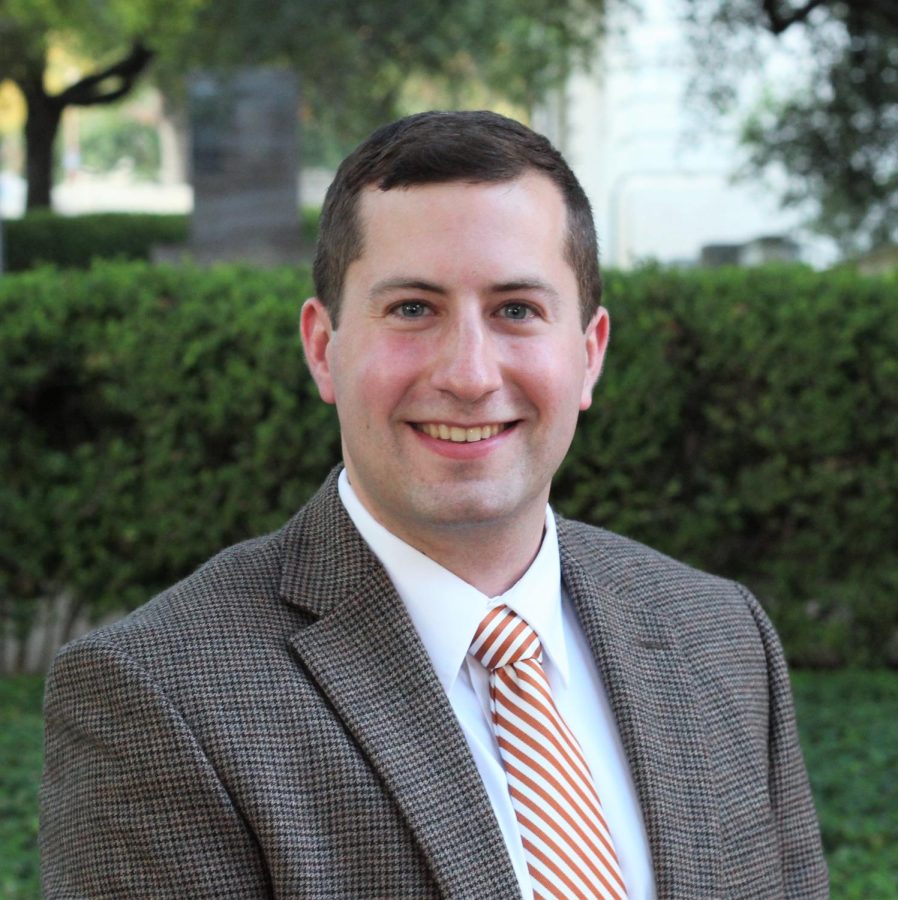UT assistant professor to conduct research abroad with Texas Global grant
February 10, 2022
A nearly $10,000 grant will allow assistant professor Benjamin Leibowicz to research sustainable development in relation to climate change in Austria this summer.
The Texas Global Faculty Research Seed Grant offers applicants up to $10,000 for collaborative research with institutions abroad. Leibowicz said he received $9,800, and these funds will support a trip to the International Institute for Applied Systems Analysis in Vienna for both Leibowicz and a student who has yet to be selected. His project will focus on studying mathematical models to uncover the best and most cost-effective climate change solutions, Leibowicz said.
“IIASA maintains a big model like this,” Leibowicz said. “They’re called integrated assessment models. The results of these models go into informing, for example, energy and climate policy in things like the Paris Agreement. … Or we can run these models to understand what policies might be effective nationally.”
The Paris Agreement is an international climate change treaty adopted in 2015 designed to limit global warming by reducing emissions.
Leibowicz said the strategies in these models are often divided into supply-side and demand-side strategies. Supply-side strategies might include using less fossil fuels and turning toward renewable energy sources instead, Leibowicz said, while demand-side strategies might determine how to best obtain everyday energy while also using less of it.
“The theme of our proposal is to look at the way that these models represent demand-side mitigation strategies,” Leibowicz said. “We have this hypothesis that they’re not fully capturing how powerful they can be as levers, basically, to mitigate climate change.”
Arnulf Grubler, the institute’s emeritus research scholar, will serve as Leibowicz’s research collaborator and provided a letter of support for the grant application.
“Summer is a good time at IIASA because we have so many people coming in,” Grubler said.
Following the summer trip, Leibowicz said he and his accompanying student will continue their research at UT in hopes that future Longhorns can spend a summer at (the institute) for similar research.
“In the future, other people will be able to go abroad and collaborate with people and explore new ideas, because that’s how innovation happens,” Grubler said. “Sometimes it’s complicated. But (in) many cases it can be fun, and in all cases, it’s very fruitful. So it enriches your own thinking and your scientific career. That’s what these international exchange programs should do.”












